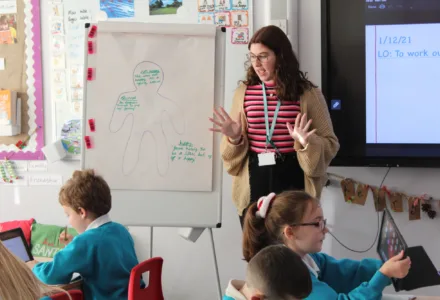Find your course
Ranked 1st in the UK for Student Satisfaction (Complete University Guide 2025)
Showing 82 courses

Business
BA (Hons)
Business
Business (Finance)
BA (Hons)
Business (Finance)
Business (Marketing)
BA (Hons)
Business (Marketing)
Criminology
BA (Hons)
Criminology
Counselling Practitioner
BA (Hons)
Counselling Practitioner
Early Childhood Studies
BA (Hons)
Early Childhood Studies
Education Studies
BA (Hons)
Education Studies
English Language & Teaching
BA (Hons)
English Language & Teaching
English Literature
BA (Hons)
English Literature
Health & Social Care
BSc (Hons)
Health & Social Care
Health & Wellbeing in Early Childhood
BA (Hons)
Health & Wellbeing in Early Childhood
History
BA (Hons)
History
Military History
BA (Hons)
Military History
Primary Education with QTS
BA (Hons)
Primary Education with QTS
Psychology
BA (Hons)
Psychology
Sociology
BA (Hons)
Sociology
Special Educational Needs, Disability & Inclusion

Sport, Coaching & Physical Education
BSc (Hons)
Sport, Coaching & Physical Education
Theology, Philosophy & Ethics
BA (Hons)
Theology, Philosophy & Ethics
Archaeology and History
BA (Hons)
Archaeology and History
Education Studies and English
BA (Hons)
Education Studies and English
Education Studies and History
BA (Hons)
Education Studies and History
Education Studies and Sociology
BA (Hons)
Education Studies and Sociology
Education Studies and Special Educational Needs, Disability & Inclusion

Education Studies and Sport
BA (Hons)
Education Studies and Sport
Education Studies and TESOL
BA (Hons)
Education Studies and TESOL
Education Studies and Theology, Philosophy & Ethics

English and History
BA (Hons)
English and History
Psychology and English
BA (Hons)
Psychology and English
English Literature and TESOL
BA (Hons)
English Literature and TESOL
History and Theology, Philosophy & Ethics

Psychology and Business
BA (Hons)
Psychology and Business
Psychology and Counselling
BA (Hons)
Psychology and Counselling
Psychology and Early Childhood Studies
BA (Hons)
Psychology and Early Childhood Studies
Psychology and Education Studies
BA (Hons)
Psychology and Education Studies
Psychology and Sociology
BA (Hons)
Psychology and Sociology
Psychology and Special Educational Needs, Disability & Inclusion

Psychology and Sport
BA (Hons)
Psychology and Sport
Sociology and Sport
BA (Hons)
Sociology and Sport
Special Educational Needs, Disability & Inclusion and Early Childhood Studies

Special Educational Needs, Disability & Inclusion and Sport

Special Educational Needs, Disability & Inclusion and Theology, Philosophy & Ethics

Special Educational Needs, Disability & Inclusion and Sociology

FdA Childhood, Youth and Families in Practice

FdA Early Childhood Education in Practice

FdA Education in Practice

FdA Primary Teaching Studies

Health & Social Care Practitioner (Grantham)

FdA Education in Practice (Grantham)

FdA Early Childhood Education in Practice (Grantham)

Professional Practice in Special Educational Needs & Disability (Grantham)

Childhood, Youth & Families in Practice
BA (Hons)
Childhood, Youth & Families in Practice
Early Childhood Education in Practice
BA (Hons)
Early Childhood Education in Practice
Early Childhood Education in Practice (Graduate Practitioner)

Education in Practice
BA (Hons)
Education in Practice
Primary Teaching Studies with QTS
BA (Hons)
Primary Teaching Studies with QTS
Professional Practice in Special Educational Needs & Disability

Certificate in Education (Teaching Post-16 and Further Education)

PGCE Primary (Full Time)

PGCE Primary (Part-Time)

PGCE Secondary
PGCE
PGCE Secondary
iPGCE
iPGCE
iPGCE
Professional Graduate Diploma in Education (Teaching Post-16 and Further Education)

Assessment Only Route to QTS (Primary and Secondary)
Teacher Training
Assessment Only Route to QTS (Primary and Secondary)
Children’s Literature and Literacies

Education with TESOL

Education
MA
Education
English Literature

Health & Social Care Leadership

International Business

International Education

Special Educational Needs & Disability

Theology & Religious Studies

Master of Business Administration (Strategic Leadership)

Career Development Professional Apprenticeship L6
Apprenticeships
Career Development Professional Apprenticeship L6
Archaeological Specialist Apprenticeship

Senior Leader Apprenticeship L7
Postgraduate Diploma
Senior Leader Apprenticeship L7
Chartered Manager Degree Apprenticeship L6
Apprenticeships
Chartered Manager Degree Apprenticeship L6
Youth Worker Apprenticeship
Apprenticeships
Youth Worker Apprenticeship
Project Manager Apprenticeship
Apprenticeships
Project Manager Apprenticeship
EdD (Doctorate of Education)

PhD (Doctor of Philosophy)
Interested in joining us?
Open days are the best way to find out what BGU has to offer.
Download your copy of our prospectus to find out more about life at BGU.


